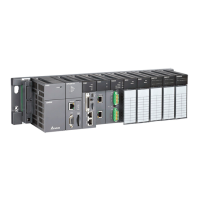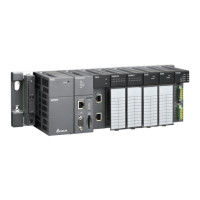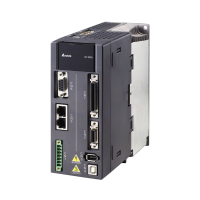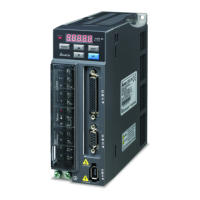Chapter 6 Applied Instructions
6-97
API
Instruction code
Operand Function
0215 BKBIN P
S, n, D
Converting the binary numbers in
blocks into the binary-coded
decimal numbers in blocks
Device
X Y M S T C HC D L SM SR E PR K 16#
“$” DF
Pulse instruction 16-bit instruction (7 steps) 32-bit instruction
AH500 AH500
Symbol:
S
:
Data source Word
n
:
Data length Word
D
:
Conversion result Word
Explanation:
1. n pieces of data (the binary-coded decimal values) in devices starting from S are converted
into the binary values, and the conversion results are stored in D.
2. The binary-coded decimal value in S should be within the range between 0 and 9,999.
3. The operand n should be within the rang between 1 and 256.
Example:
When M1 is ON, the binary-code decimal values in D0 and D1 are converted into the binary values,
and the conversion results are stored in D4 and D5.
Additional remark:
1. If n is less than 1, or when n is larger than 256, the instruction is not execute, SM0 is ON, and
the error code in SR0 is 16#200B.
2. If the devices specified by S+n-1 and D+n-1 exceed the range, the instruction is not executed,
SM0 is ON, and the error code in SR0 is 16#2003.
3. If the data in S is not the binary-coded decimal, the instruction is not executed, and the error
code in SR0 is 16#200D (The binary-coded decimal value is represented by the hexadecimal
number, but one of digits is not within the range between 0 and 9.).
4. If S~S+n-1 overlap D~D+n-1, the instruction is not executed, SM0 is ON, and the error code in
SR0 is 16#200C.

